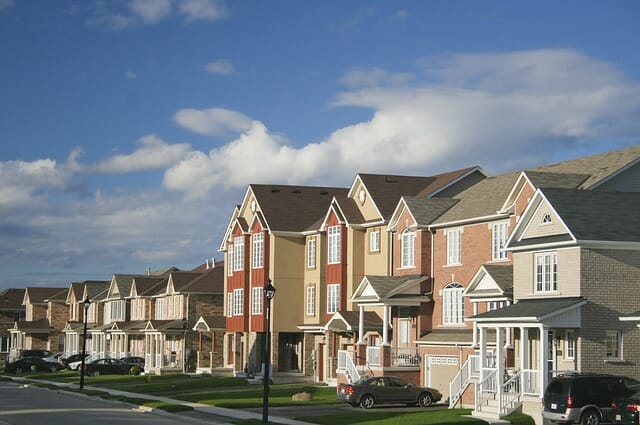Purchasing property is a proud achievement for anyone. But like any new stage in life, it comes with certain responsibilities, particularly if you’re buying a condo in a planned development project.
That’s because planned development properties are managed by a homeowner’s association (HOA). Most people are unfamiliar with the concept of an HOA, much less how to participate in one.
If that sounds like you, read the following guide on HOA’s to find out the top 9 most important things to know about HOAs.
What is an HOA?
The homeowners association is an organization that’s made up of individual homeowners in the same community. The main objective of an HOA is to ensure on-going maintenance of community infrastructure such as communal roads, landscaping etc.
This helps to preserve property value while keeping living standards high.
An HOA may also determine certain rules and regulations that homeowners need to abide by, such as the number of cars you’re allowed to park; the paint color you should use on your property, or the type of landscaping features that are allowed.
9 things you need to know about HOA
Here are 9 things you need to know about HOAs before you buy into a planned development project:
- An HOA is a non-profit organization
This is an important point to make because there are a lot of negative preconceptions about HOAs out there. But, since a majority of the HOA is made up for volunteer homeowners, it’s safe to assume that their decisions are based on improving the community’s well-being and not on profit.
Of course, some HOAs are professionally managed by a private company or a Certified Manager of Community Associations (CMCA). If that’s the case in your scenario, then you should do your research about the company’s reputation. Also, be sure to ask the residents about their views on the HOA’s management to get an idea of how satisfied they are with the company’s management.
- You will be charged fees
Like any other organization, the HOA needs to have an operating budget to cover costs like maintenance of common areas. This includes the communal gym, swimming pool and outdoor landscaping for example.
To cover these and other costs, HOA members are required to pay a monthly rate. Keep in mind that rates also depend on the building’s location and what kind of property you’re buying.
For instance, your rates might be a little bit higher if you’re buying a condominium. That’s because the HOA must have additional funds on their reserve account to pay for big expenses like roof replacements.
Another important point to mention is that monthly HOA fees might change over the years based on inflation and other factors. HOAs usually plan future rate hikes in advance, so you’ll do well to ask if this is the case with your HOA before you move into the property.
HOA rates also vary from one place to the next. But, they’re usually around $300 on average, depending on the type of development you’re living in and the needs of your community.
You may end up paying more than your neighbor who has less square footage than you because they’re less demanding on the communal budget.
Either way, lenders will factor in HOA rates when deciding on a final mortgage amount. Plus, condos with higher HOA rates usually sell for a higher amount than properties with lower HOA fees. So, keep that in mind when inquiring about HOA rates.
- HOAs determine the availability of shared facilities
Since you’re paying for the shared amenities in your community, it’s worth inquiring about their availability. You see, shared facilities such as swimming pools and tennis courts usually operate within a defined schedule.
Homeowners are required to book these facilities according to the hours in which they’re open. That means if the gym at your condo unit only opens when you’re at work then you’re practically wasting your money because you’ll hardly get to use it.
In instances where only one resident can book an amenity at a time; like a barbecue or a party room, the amenity gets double booked and disputes can occur. Therefore, a lot of association boards are starting to invest in HOA software that displays the availability of an amenity. This will mitigate common issues like double booking.
Be sure to ask the HOA about the availability of their amenities and what the rules are around guest use. Remember you may want to share the communal pool with friends and family that come to visit over the holidays.
- HOAs have different priorities
Every HOA has unique priorities depending on the issues and objectives of the community it serves. A great way to find out what your HOAs priorities are is to investigate the organization’s meeting minutes.
This will give you an idea of what the most pressing matters are in the community as a whole, and it will prepare you when it’s time to attend your first HOA Annual General Meeting.
- HOAs make the rules
The main aim of an HOA is to provide covenants, codes, and restrictions (CCRs). These CCRs are meant to protect the property value and help preserve the property going forward.
The regulations set out in your HOA’s CCR documents will typically cover a wide spectrum of issues. This includes things like the type of items you’re allowed to store in your property to the kind of paint color that you can use on your house.
We highly recommend that you ask for this document before you sign on the dotted line, that way, you’ll know what you’re getting yourself into from the beginning and won’t regret joining the community later.
There are already too many accounts of homeowners who realize after the fact that they don’t agree with most of their HOAs rules. But, they’re forced to bite the bullet and live with them anyway. To avoid all that, make sure to read through the CCR document thoroughly while you still have a chance to decide.
- The HOA has penalties for wrongdoing
Every HOA has a set of penalties in place that provide guidance on how to handle misconduct and disagreements. These penalties differ according to the state that the property’s located in, as well as the unique history of the community.
Keep in mind that penalties also differ according to the size of the problem at hand. For example, while one HOA might choose to fine you for an offense, another may lay charges or even place a lien on your property.
Nevertheless, HOAs are known to come down pretty hard on rule breakers. That’s why you should ask your HOA about their policy for handling conflicts and violations, or just look it up in their CCR document.
To get a better idea of how the policy operates in real-life scenarios, request to see a documented accounting of rule violations. Hopefully, this document will give you some insight into how the HOA handles conflicts.
- Very HOA should have an insurance policy
Look into the HOAs insurance policy to see what it covers and what it doesn’t. Keep in mind that insurance responsibilities can be divided between the HOA and individual homeowners. But, homeowners shouldn’t be burdened with responsibilities that the HOA should be taking care of.
Catastrophe insurance is a must if you’re buying a condo, especially if you live in an area that’s prone to experiencing natural disasters. Some HOAs will include this cover in your monthly rate but this isn’t always the case. In fact, hail cover is a common oversight among HOAs and it can be the bane of your existence if something happens.
Also, without the right insurance cover, an HOA might be placing its members at risk of assessments. Assessments are additional fees that residents must pay to make up for the HOAs budget shortfall. This often happens when the HOA has to make unexpected repairs or large scale upgrades without preparing for it.
So, it’s worth checking that the HOA is up to date with their insurance payments and that there are no delinquent homeowners within the HOA.
- They help to maintain the integrity of the community
Another important purpose of the HOA is to maintain the landscaping, private street sweepers and community facilities. Thanks to HOAs you don’t have to deal with neighbors that have sloppy home maintenance or wacky decorating styles.
They’ll make sure that the community stays beautiful, uniform and well-maintained. It’s like being part of a private club that functions according to a set of pre-defined rules. The only difference is that the HOAs CCRs are geared towards ensuring the long-term viability of each home.
- Some HOAs have sub-association fees
These fees are to maintain the infrastructure of a sub-community within a master development plan. This usually applies to developments that are done in phases.
This means that people who buy into Phase 1 or Phase 2 are required to pay sub-association fees to maintain the property values and infrastructure in that particular phase.
Conclusion
Joining an HOA is part and parcel of buying property in a planned development. The HOA is responsible for maintaining the environment surrounding your property, which helps to keep living standards high while elevating property values.
But, HOA benefits come at a price. As a homeowner, you’ll be required to participate in the HOA and pay a monthly contribution to support its activities. As an HOA member, you’ll have to toe the line and obey its rules and regulations to maintain order.
If you’re thinking of buying a condo within a planned development community, make sure to do so through a seasoned agent who has experience with HOA developments.



